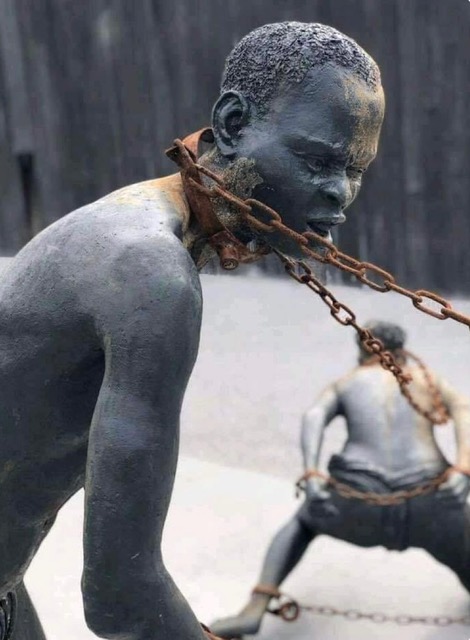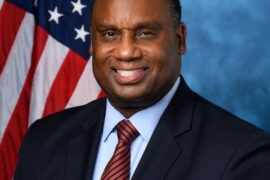America has found itself at the crossroads of its history, where the unforgiving demands of justice tug at the fabric of its society. The clamor for reparations rings loud in the ears of conscious citizens, who understand that the nation’s past is an indelible mark, unsightly yet unmissable. It’s a contentious topic, to say the least, rife with complexity and peppered with underlying currents of discomfort. But beneath the layers of debate lies a simple, raw truth: America owes a debt to Black descendants, and it is high time we address the outstanding balance. This should be a front-and-center agenda item for the 2024 presidential campaign.
The legacy of slavery and systemic racism in America cannot be denied – America’s original sin. It is a painful truth that has long been swept under the rug but now demands to be acknowledged and reckoned with. For centuries, Black Americans have endured countless injustices, from forced labor and segregation to police brutality and unequal access to opportunities. This history of oppression has had lasting effects on the community, including economic disparities, intergenerational trauma, and a lack of representation in positions of power as full citizenship has been denied.
But what exactly are reparations? At its core, reparations are a form of compensation for past wrongs committed against a group or individuals. In the case of Black Americans, it would involve acknowledging the harm done through enslavement and subsequent discrimination and providing restitution for those impacted. The Civil Liberties Act of 1988 paid Japanese Americans an average of $20,000 per person to 82,250 eligible claimants.
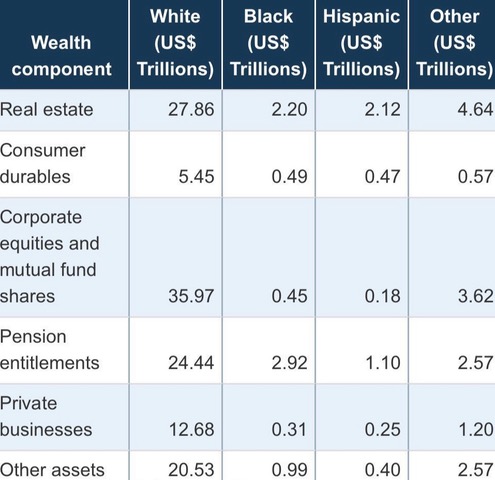
This discussion is neither a mere intellectual exercise nor a political gambit; it’s a mandate of morality. The legacy of slavery, lynching, segregation, and institutionalized racism has woven a web of economic disparity that is as profound as it is persistent. While the explicit chains have been broken, their economic and social ramifications persist more subtly yet just as destructively. The wealth gap between Black and white Americans is staggering, with Black families possessing only one-tenth of the assets of their white counterparts. This disparity has been passed down through generations, preventing Black communities from achieving upward mobility and perpetuating cycles of poverty. The government has been responsible for the deficiency in Black America via cause and effect. In simple terms, a white family’s wealth is ten times greater than a Black family’s. This is a long-term effect of slavery.
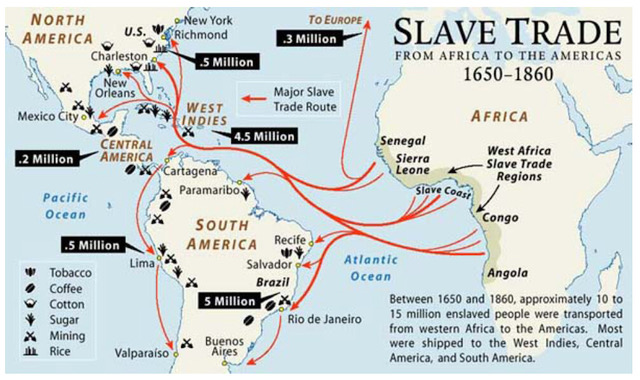
But beyond economics, reparations hold a moral obligation on a deeper level. It’s an acknowledgment of the atrocities committed against the estimated 12.5 million that were shipped to the New World between 1525 and 1866. These are the figures issued by the Trans-Atlantic Slave Trade Database, “the gold standard.”
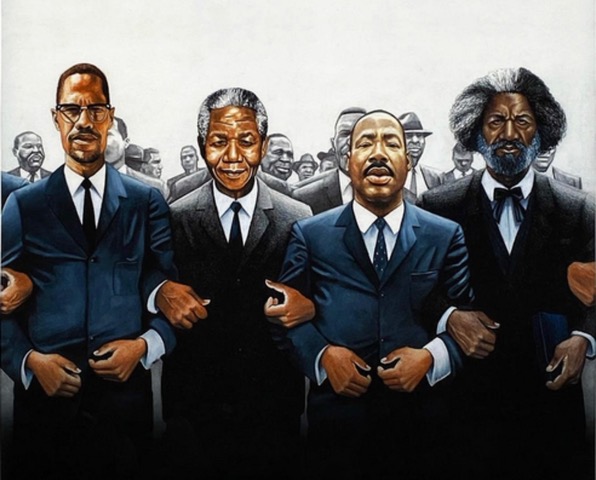
To understand the profound necessity of reparations is to recognize the incomprehensible scale of injustice committed against Black Americans. Slavery, which decimated a continent and built a nation, fostered an economic chasm that no legislative equality could hope to bridge. And it is this economic chasm—manifested in poverty rates, educational disparities, and incarcerated populations— that serves as a stark reminder of the unfinished work of freedom. We have heard the clarion call from Frederick Douglas, Malcolm X, Dr. Martin Luther King, Jr., and Nelson Mandela.
Proponents of resistance to reparations often argue the intricacies of distribution and the fading proximity to the actual atrocities committed. But to hinge the pursuit of reparative justice on such logistics is to miss the forest for the trees. The goal is not to endorse a welfare system but to acknowledge the role of America’s original sin in crafting an inherently biased system and to take active measures to rectify it. We fight wars for freedom and democracy. To date, Ukraine has been American financed at $75 billion for humanitarian financial and military support. When do we provide humanitarian support to Black American citizens?
The essence of reparations goes beyond financial restitution; it embodies a cultural acknowledgment, an educational reform, and an economic realignment. It demands a systemic overhaul that ensures Black Americans are equal on paper and given the tools to thrive in practice. It necessitates reimagining policies that have historically disenfranchised entire communities and a commitment to redress. It is a financial commitment to end the deserts that still exist in Black communities, i.e., food, media, health care, etc.
Opposition to reparations often smacks of self-preservation — a fear that acknowledgment of past sins will, in some way, diminish the moral high ground upon which America believes it stands. The contrary is true. The humility to confront our demons and right historical wrongs is the foundation upon which our moral compass stays true. It is a testament to the unshakeable belief in the very ideals that America purports to champion.
Far from a handout, reparations are a societal investment—an investment in healing, education, and entrepreneurship, an investment in the true unification of a country still grappling with the ghosts of its past. The time for tepid acknowledgments and half-measures is past. Justice deferred is justice denied; it’s a truism at the heart of America’s promise, and by that same promise, reparations must be fulfilled.
This isn’t a call to arms confounded by resentment or incensed by guilt; it’s a call to intellect, anchored by the most unyielding sense of equity. The narrative of the Black American struggle is, at its core, a narrative of resilience, of overcoming insurmountable odds. Reparations represent the next chapter—an America in its cathartic moment.
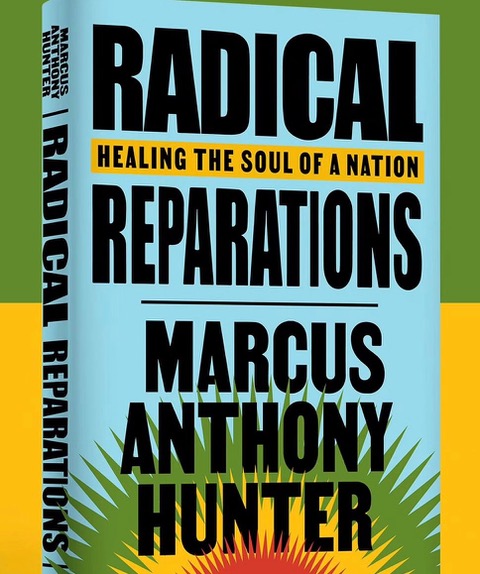
‘Healing the Soul of a Nation’s Reparations’ by Marcus Anthony Hunter is a timely, groundbreaking book in the vein of Derrick Bell‘s ‘Faces at the Bottom of the Well.’ One of the country’s foremost voices on reparations, it offers a radical and vital new framework going beyond the current debate over this controversial issue.
For over a century, the idea of reparations for the descendants of enslaved Black Americans has divided the United States. However, while the iconic phrase “40 acres and a mule” encapsulates the general notion of reparations, history has proven that the damages of enslavement on the African American community far exceed what a plot of land or a check could repair. While reparations are being widely debated once again, current petitions to redress the lasting and collateral consequences of slavery have not moved past economic solutions, even though we know that monetary redress alone is not enough. Not only would many wounds be left unhealed, but relying solely on economics would continue a legacy of neglect for African Americans. In this thoughtful and sure-to-be controversial book, Hunter argues that a radical shift in our outlook is necessary; we need more comprehensive solutions such as those currently sought by today’s educators, historians, activists, organizers, Afrofuturists, and socially conscious citizens.

In Radical Reparations, this conversation shifter, social justice pioneer, change agent, and inventor of the hashtag #BlackLivesMatter, which redefined the global conversation on racism and social justice, offers a unifying and unconventional framework for achieving holistic and comprehensive healing of African American communities. Hunter reimagines reparations through a profound new lens as he defines seven types of political, intellectual, legal, economic, spatial, social, and spiritual, using analysis of historical documents, comparative international cases, and speculative parables. Profound and revolutionary, trenchant and timely, Radical Reparations provides a compelling and provocative reframing of reparations’ past, present, and future, offering a unifying way forward for us all.
In the final analysis, the pursuit of reparations is an extension of the American Dream — one where all its citizens are afforded the inalienable rights of life, liberty, and the pursuit of happiness. Until the scales of economic opportunity are balanced, that dream will remain an aspirational fable for many—a cruel irony in a land built on the promise of freedoms for all. We fight world wars for humanity, freedom, and democracy. We need to do the same at home.
To an administration seeking to cement its legacy, a nation that yearns for reconciliation, and a people that craves justice—now is the hour. Reparations are not just a possibility; they are a responsibility, a charge to emulate the words etched into the heart of the American consciousness: “We hold these truths to be self-evident.” The time for truth is upon us, and with it, the solemn obligation to make right a past that has for too long continued to cast its shadow on an unfulfilled destiny.
The minister, educator, and politician must rise to the occasion at every level. It’s 2024.


